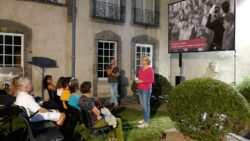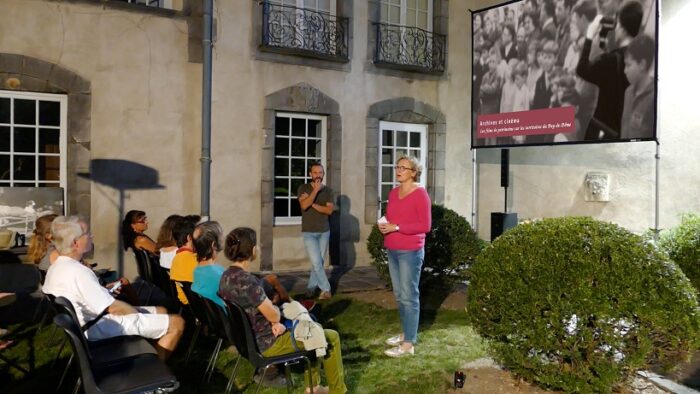The Puy-de-Dôme regional department has set up a programme of partnerships so the amateur film collections housed in the departmental Archives can be more widely screened by the various agencies active in local communities and associative groups.
The Puy-de-Dôme is an area that has a history of filming – Éric Rohmer made Ma Nuit chez Maud in Clermont-Ferrand, and François Truffaut L’Argent de Poche in Thiers, and the famous international short film festival has been based in Clermont-Ferrand since 1982. Since 2015, the departmental Archives in the Puy-de-Dôme department have been actively collecting and preserving amateur and non-theatrical film and video documents. These documents, either filmed by local Puy-de-Dôme inhabitants or relating to the history of the area and the lives of the people, are then made available to the public.
In 2019, the Puy-de-Dôme department set up the “Archives et Cinéma” programme so the films could be seen by as many viewers as possible: screenings have been developed as well as talks and even performances in partnership with local agencies such as libraries, student groups, cinemas, local heritage organisations etc.
For every event bearing the “Archives et Cinéma” label, the departmental Archives supply a specific contract defining the functions of all involved, and provide, free of charge, a programme of films based on the theme chosen together with the local agency. The Archives also supply an officer to oversee and host the event. The local agency, in turn, provides the room and the equipment for the screening, and if need be, pays for a guest speaker (historian, filmmaker…). The local agency also commits to promoting, on a local basis, the Puy-de-Dôme department’s policy of collecting and preserving amateur and non-theatrical film.
In this way, the “Archives et Cinéma” programme supports the Puy-de-Dôme department in their policy of making a wide-ranging public better aware of the need for conserving our little known filmed heritage, as well as its significance in historical and anthropological terms. It is also important to provide a rural public with cultural events that foster meetings with people and groups that may lead to further endowments of filmed heritage.
The trailer below shows many such meetings and the warm atmosphere they generate (if the video doesn’t appear, you can click here). The complete programme for the upcoming semester is available here.


